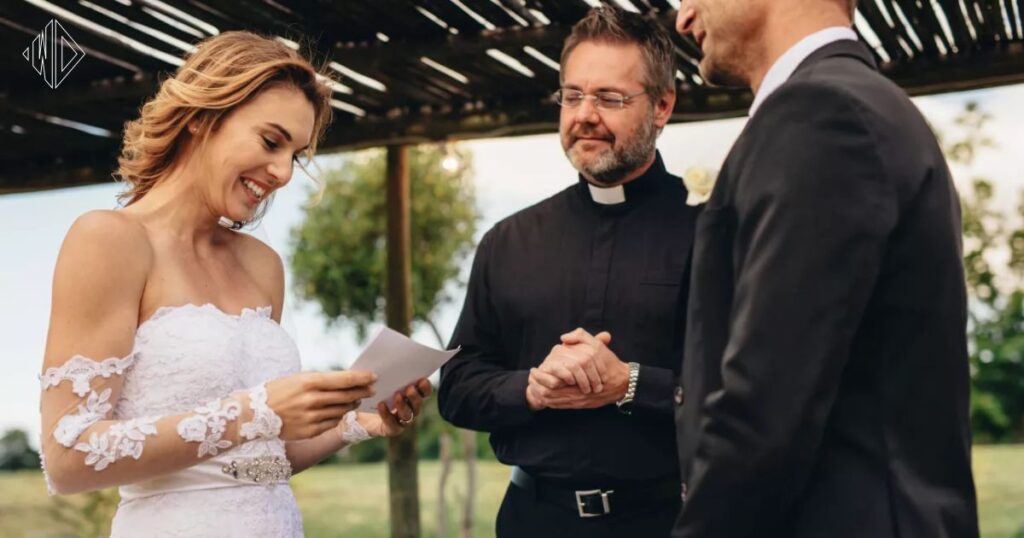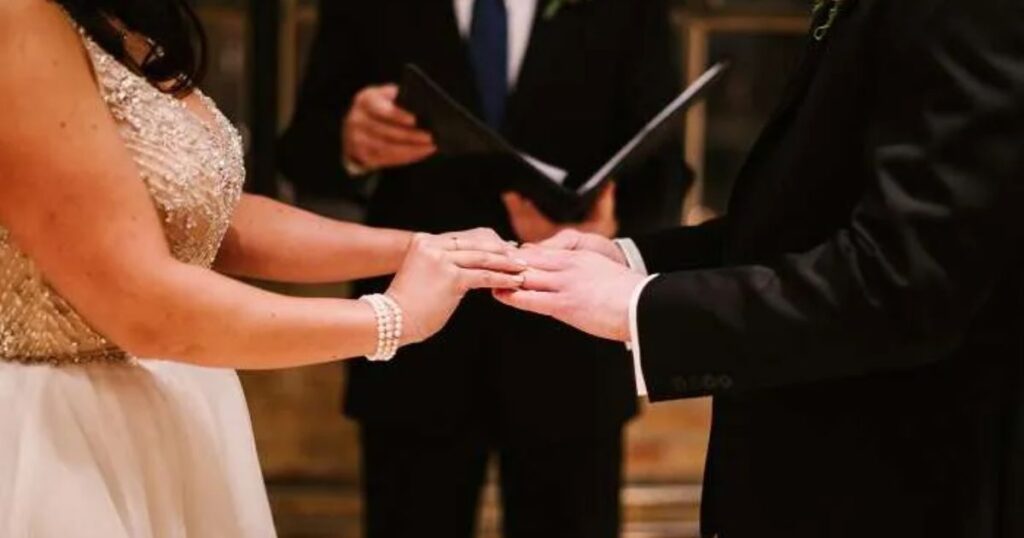Are you passionate about weddings and interested in playing a special role in couples’ big days? Becoming a wedding officiant could be the perfect opportunity for you! As the popularity of personalized wedding ceremonies continues to grow, more and more couples are seeking out officiant services outside of traditional religious leaders. By becoming a wedding officiant, you can earn extra income, be part of joyful celebrations, and enjoy the flexibility of setting your own schedule.
In this comprehensive guide, we’ll walk you through the step-by-step process of how to become a wedding officiant in the USA. We’ll cover the legal requirements, practical considerations, and the key steps involved in launching your career as a wedding officiant. Whether you’re looking to officiate weddings on the side or turn it into a full-time profession, this article has everything you need to get started.
The Requirements to Become a Wedding Officiant
Legal Requirements
The legal requirements to become a wedding officiant vary depending on the state, so it’s crucial to thoroughly research and understand the specific laws in the area where you plan to perform ceremonies. In general, the main steps involve:
- Getting Ordained: This is the foundational step that legally authorizes you to solemnize marriages. There are several ways to get ordained, including online ordination services, local religious institutions, and civil celebrant programs.
- Registering with the State: Many states require wedding officiants to register with the county or state government and obtain any necessary licenses or permits. This ensures you’re operating legally within the jurisdiction.
- Complying with State Marriage Laws: Each state has its own regulations regarding wedding officiants, such as the minimum age requirement, residency rules, and the documents needed to perform a legal marriage. Be sure to familiarize yourself with these guidelines.
Practical Considerations
In addition to the legal prerequisites, there are several practical skills and qualities that make an effective wedding officiant:
- Strong Public Speaking Abilities: You’ll need to deliver the ceremony with confidence, clarity, and poise in front of a crowd.
- Interpersonal and Empathy Skills: Building a rapport with the couple and making them feel comfortable is essential. You should have a warm, personable demeanor.
- Knowledge of Wedding Traditions: Understanding different cultural and religious customs can help you customize ceremonies to the couple’s preferences.
- Organizational and Time Management Skills: Coordinating with the wedding party, keeping the ceremony on schedule, and managing last-minute changes require excellent organizational abilities.
The Process of Becoming a Wedding Officiant

Getting Ordained
The first step to becoming a wedding officiant is to get ordained. This is a straightforward process that can be completed online through various organizations. Some of the top ordination services include:
- The Universal Life Church
- American Marriage Ministries
- International Federation for Family Development
The ordination process typically involves filling out an online application and paying a small fee. Once completed, you’ll receive your ordination credentials, which you can then use to register with the state as a wedding officiant.
It’s important to note that some states recognize only certain types of ordination, such as those through religious institutions. Be sure to research your state’s specific requirements before choosing an ordination service.
Registering and Obtaining Licenses
After getting ordained, the next step is to register as a wedding officiant with your state or county government. This process varies by location, but generally involves submitting an application, providing a copy of your ordination credentials, and paying any necessary fees.
Some states may also require you to obtain additional licenses or permits to perform wedding ceremonies legally. For example, you may need a business license, a professional certification, or a specific marriage officiant license. Be sure to thoroughly review your state’s and local jurisdiction’s requirements.
Building Your Wedding Officiant Business
Once you’ve completed the legal and administrative steps, it’s time to start building your wedding officiant business. Here are some key strategies to consider:
- Create a Professional Website: Develop an online presence that showcases your services, experience, and availability. Include a portfolio of sample ceremonies, client testimonials, and your booking and pricing information.
- Network with Wedding Vendors: Build relationships with local wedding planners, venues, photographers, and other vendors. This can help you receive referrals and be included in vendor directories.
- Leverage Social Media: Maintain an active presence on platforms like Instagram, Facebook, and LinkedIn to promote your services, share wedding photos, and engage with potential clients.
- Set Competitive Rates: Research the going rates for wedding officiants in your area and price your services accordingly. Consider factors like your experience, the ceremony customization, and any additional services you offer.
- Develop a Booking and Cancellation Policy: Clearly communicate your availability, booking process, and cancellation terms to manage client expectations and protect your business.
Performing Wedding Ceremonies

Once you’ve booked a wedding, the next step is to prepare for the ceremony. This involves:
- Meeting with the Couple: Schedule a meeting with the couple to discuss their vision for the ceremony, including any cultural or religious traditions they’d like to incorporate, personal vows or readings, and other customizations.
- Collaborating on the Ceremony Script: Work closely with the couple to craft a personalized ceremony script that reflects their love story and values. Offer suggestions and guidance, but ensure the final script reflects their preferences.
- Rehearsing the Ceremony: Attend the wedding rehearsal to walk through the ceremony with the couple and wedding party. This helps ensure a smooth, well-coordinated event on the big day.
Delivering an Exceptional Ceremony
On the wedding day, your role as the officiant is to guide the ceremony with poise, empathy, and attention to detail. Key elements of a well-executed wedding ceremony include:
- Maintaining a Calm, Confident Presence: Your demeanor and delivery set the tone for the entire ceremony. Speak slowly, clearly, and with a reassuring tone.
- Incorporating Meaningful Elements: Weave in personalized touches, such as the couple’s story, meaningful readings, or symbolic rituals, to make the ceremony truly memorable.
- Handling Unexpected Situations: Be prepared to think quickly and remain flexible if any unexpected events or interruptions occur during the ceremony.
- Ensuring the Legality of the Marriage: Properly sign and file the marriage license to ensure the union is legally recognized.
By mastering these aspects of wedding officiating, you can deliver a ceremony that leaves a lasting impression on the couple and their guests.
Read more : Dentelle Wedding Dress
Conclusion
Becoming a wedding officiant in the USA is a rewarding and flexible career path for those with a passion for weddings and public speaking. By following the necessary legal requirements, developing the right skills and qualities, and building a successful business, you can embark on a fulfilling journey as a wedding officiant.
Remember, the key to success lies in understanding your state’s specific laws, honing your interpersonal and public speaking abilities, and providing couples with a personalized, memorable ceremony that reflects their unique love story. With dedication and the right approach, you can turn your dream of becoming a wedding officiant into a thriving reality.
